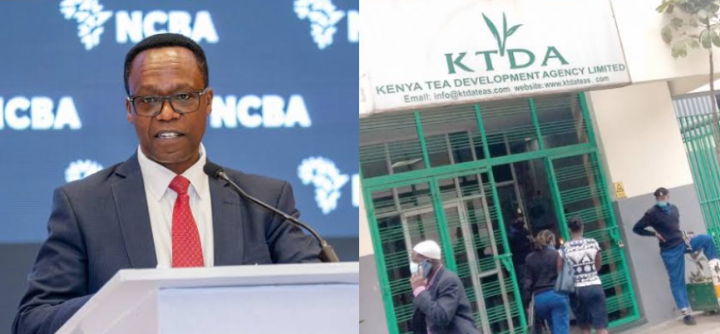Former Kenya Tea Development Agency (KTDA) General Manager Francis Mwenda has been ordered to forfeit Ksh 35 million, a sum identified by the Assets Recovery Agency (ARA) as proceeds of crime.
The ruling, delivered by Judge Patrick Otiende, applied the Proceeds of Crime and Anti-Money Laundering Act (POCAMLA) to address concerns over unverified wealth and suspicious financial activities.
This case has brought NCBA Bank under scrutiny due to its involvement in handling the questionable deposits, rekindling concerns about Kenya’s financial sector and its ongoing challenges with upholding anti-money laundering protocols.
The investigation into Mwenda’s finances revealed suspicious cash deposits in his accounts at NCBA Bank, where he repeatedly deposited amounts just under the Ksh1 million threshold.
This pattern of transactions raised red flags, as Kenyan banking laws require banks to report any deposits or withdrawals exceeding Ksh1 million to the Financial Reporting Centre (FRC).
By consistently depositing smaller amounts, Mwenda appeared to be avoiding the reporting requirements, a tactic that ARA argued was indicative of illicit financial activity.
In defense, Mwenda claimed the funds originated from legitimate sources, including per diems associated with his work at KTDA and earnings from a personal transport business.
However, ARA’s audit revealed that the volume of these deposits significantly exceeded what could reasonably be accounted for by his reported sources of income.
The audit findings pointed to a discrepancy that could not be reconciled, ultimately leading Judge Otiende to rule that the Ksh 35 million represented unlawful proceeds.
As such, the funds were ordered forfeited to the state, marking a significant precedent in Kenya’s efforts to enforce financial transparency and accountability.
This case has brought renewed attention to NCBA Bank’s practices, particularly in light of past financial scandals that have implicated Kenyan banks in similar controversies.
The financial sector in Kenya has seen multiple instances where banks have been implicated in facilitating suspicious transactions, either through lapses in oversight or active involvement.
For instance, in 2016, several Kenyan banks were penalized for failing to report suspicious transactions linked to the National Youth Service (NYS) scandal, one of Kenya’s most notorious cases of financial corruption.
In these cases, banks were accused of neglecting their responsibility to uphold anti-money laundering laws, allowing funds to flow unchecked through the financial system.
The Mwenda case has reignited debates over whether NCBA Bank and other institutions are rigorously enforcing anti-money laundering regulations, particularly with high-value clients.
While the bank has not been directly accused of wrongdoing in this case, its role in handling the suspicious deposits has raised questions about the effectiveness of its internal monitoring systems.
The recurring issue of structuring deposits to evade reporting requirements suggests potential vulnerabilities in the bank’s compliance mechanisms, vulnerabilities that could undermine public trust if left unaddressed.
Financial institutions in Kenya are legally obligated to implement stringent know-your-customer (KYC) and anti-money laundering (AML) measures to prevent financial crimes.
These obligations are essential to maintaining the integrity of Kenya’s financial sector and deterring illicit financial activities.
However, the persistence of cases like Mwenda’s suggests that these safeguards may not be uniformly or adequately enforced.
Whether due to gaps in policy implementation or lack of stringent oversight, banks risk becoming conduits for financial misconduct, inadvertently aiding in the concealment of illegally acquired funds.
The forfeiture of Mwenda’s Ksh 35 million reflects a broader commitment by Kenyan authorities to address corruption and money laundering through the enforcement of POCAMLA.
This legislation empowers agencies like ARA to target unexplained wealth, aiming to dismantle the structures that enable financial crimes.
By reinforcing transparency and accountability, such rulings can help curb corruption and send a clear message to individuals and institutions alike that illicit financial practices will not go unpunished.
For NCBA Bank, the case poses the critical importance of upholding stringent AML practices.
It also serves as a reminder of the reputational risks associated with financial oversight failures.
Banks are not merely custodians of assets; they play an essential role in the economic system’s stability and integrity.
The Mwenda case, therefore, is not just an isolated incident but part of a larger narrative in Kenya’s fight against corruption and financial misconduct.
The ruling sets a precedent for future cases, signaling that neither high-ranking officials nor respected institutions will be spared scrutiny when it comes to financial accountability.
In this environment, NCBA Bank and other institutions face increasing pressure to ensure compliance with legal and ethical standards, reinforcing public trust and contributing to a more transparent financial system.





















Add Comment